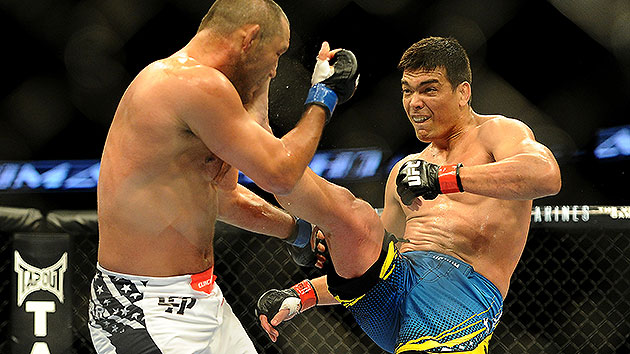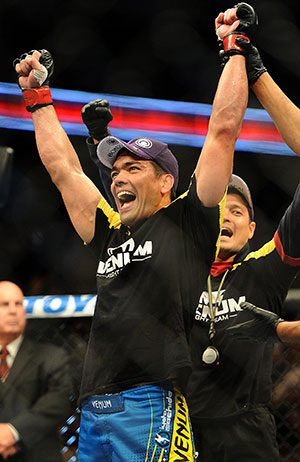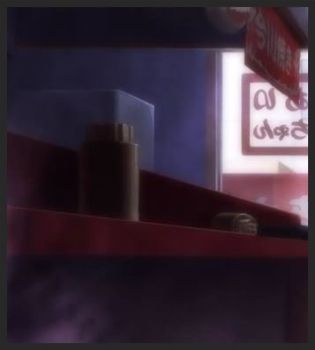Newly appointed Cuba's Vice President Miguel Diaz-Canel participates in the closure session of the National Assembly in Havana, Cuba, Sunday, Feb. 24, 2012. Raul Castro accepted a new five-year term that will be, he said, his last as Cuba's president and tapped rising star Diaz-Canel, 52, as vice-president and first in the line of succession. (AP Photo/Ramon Espinosa)
Newly appointed Cuba's Vice President Miguel Diaz-Canel participates in the closure session of the National Assembly in Havana, Cuba, Sunday, Feb. 24, 2012. Raul Castro accepted a new five-year term that will be, he said, his last as Cuba's president and tapped rising star Diaz-Canel, 52, as vice-president and first in the line of succession. (AP Photo/Ramon Espinosa)
Cuba's new Vice-President Miguel Diaz-Canel, right, listens to Cuba's President Raul Castro during the closing session at the National Assembly in Havana, Cuba, Sunday, Feb. 24, 2012. Raul Castro accepted a new five-year term that will be, he said, his last as Cuba's president and tapped rising star Miguel Diaz-Canel, 52, as vice-president and first in the line of succession. Diaz-Canel has risen higher than any other Cuban official who didn't directly participate in the 1959 Cuban revolution. At center Cuba's Minister of Foreign Affairs Bruno Rodriguez.(AP Photo/Ramon Espinosa)
Newly appointed Cuba's Vice President Miguel Diaz-Canel, left, leaves after participating in the closure session of the National Assembly in Havana, Cuba, Sunday, Feb. 24, 2012. Cuba's President Raul Castro accepted a new five-year term that will be, he said, his last as Cuba's president and tapped rising star Diaz-Canel, 52, as vice-president and first in the line of succession. (AP Photo/Franklin Reyes)
HAVANA (AP) ? The man tapped as the likely heir-apparent to Raul Castro is largely unknown off the island, but his rise to the country's No. 2 job was anything but meteoric.
Miguel Diaz-Canel has spent 30 years gradually paying his dues behind the scenes, earning a reputation as a Communist Party loyalist and rising through the ranks to a succession of ever-higher posts.
"He is not an upstart or improvised," President Raul Castro said Sunday in a speech to lawmakers in which he laid out the reasons for his choice. In the past, Castro has praised Diaz-Canel's "solid ideological firmness."
Tall, dapper and carefully groomed with a 52-year-old's salt-and-pepper hair, Diaz-Canel presents a serious public face before TV cameras, even as some people who know him describe him as a sharp-minded jokester who can be surprisingly relaxed in private.
"He's a much more flexible type than he seems, open-minded and above all intelligent," one official who has known Diaz-Canel since the 1980s told The Associated Press on condition of anonymity, lacking the authorization to discuss the man with foreign media.
Others, particularly those off the island, described him in less flattering terms.
"I think it's interesting because Diaz-Canel is not a charismatic person," said Alejandro Barreras, who runs a blog in Miami called On Two Shores that advocates for a normalization of relations between the US and Cuba. "He's kind of an opaque figure."
Diaz-Canel's profile has risen in recent months as he repeatedly appeared on state TV newscasts. One day he was speaking about Cuba's national baseball team, the next he was inaugurating Havana's International Book Fair.
In January he traveled to Venezuela and spoke prominently at a mega-rally in support of cancer-stricken President Hugo Chavez, arguably Havana's most important international ally.
"Today we are all Chavez!" Diaz-Canel said at the rally wearing a red tropical "guayabera" shirt.
Born April 20, 1960 in the central city of Santa Clara, Diaz-Canel wore his hair long as a youth and was a fan of the Beatles ? even though at the time that could get you into trouble with authorities, who rejected Western influences. Diaz-Canel still listens to the group, acquaintances say privately.
He graduated in electrical engineering and was a radio specialist in the armed forces, as well as a professor at the Central University of Las Villas.
He was involved early in communist youth groups and rose to become the party's first secretary for the central province of Villa Clara. Diaz-Canel also did a turn as a Party emissary in Nicaragua.
In 2003, he was named to the ruling council and became first secretary for Holguin, before leaving that post.
He became minister of higher education in 2009, and last March was named vice president of the Council of Ministers.
Back in the 1980s, Diaz-Canel was part of a group of young Communist leaders headed by former foreign minister Roberto Robaina, who offered fresh ideas and stood out by riding bicycles around the city.
Robaina was relieved in 2002 in what has been an all-too-common tale in Cuba: Icarus-like politicians suddenly falling back to earth. A similar fate also befell people like Felipe Perez Roque and Carlos Lage, who were thought to be potential successors to the Castros.
But Diaz-Canel survived the purges and today is the most highly placed politician of his generation, the second most powerful political figure in Cuba.
Diaz-Canel's gradual rise was likely appealing to a military man like Castro, said Arturo Lopez-Levy, a Cuban economist and analyst who lectures at the University of Denver. That's in contrast to Fidel Castro, who was known for plucking people from below and promoting them "by helicopter," only to sour on them later
"His step-by-step ascent is in line with Raul's logic," Lopez-Levy said.
___
Associated Press writers Peter Orsi in Havana and Christine Armario in Miami contributed to this report.
___
Andrea Rodriguez on Twitter: www.twitter.com/ARodriguezAP
Associated PressSource: http://hosted2.ap.org/APDEFAULT/cae69a7523db45408eeb2b3a98c0c9c5/Article_2013-02-24-Cuba-New%20Vice%20President/id-2abff20b256c4ca0bb2a4f4f2c24be19
Stephanie Bongiovi stanford football guy fieri Jill Kelley hope solo hope solo tesla model s
 That Samsung was tinkering with a slightly smaller Galaxy Note tablet
That Samsung was tinkering with a slightly smaller Galaxy Note tablet  ANAHEIM, Calif. -- Lyoto Machida took a split decision over Dan Henderson in the co-main event at UFC 157 on Saturday. The judges saw it 29-28, 28-29, 29-28 for Machida.
ANAHEIM, Calif. -- Lyoto Machida took a split decision over Dan Henderson in the co-main event at UFC 157 on Saturday. The judges saw it 29-28, 28-29, 29-28 for Machida.

 Reliable Heating and Air Conditioning has been named the Bryant Medal of Excellence for its local territory.
Reliable Heating and Air Conditioning has been named the Bryant Medal of Excellence for its local territory.
 Adera: Meeting AMAZING people and showcasing them to the world! Learning new ways of getting information online that is positive, joyful and fun!
Adera: Meeting AMAZING people and showcasing them to the world! Learning new ways of getting information online that is positive, joyful and fun!